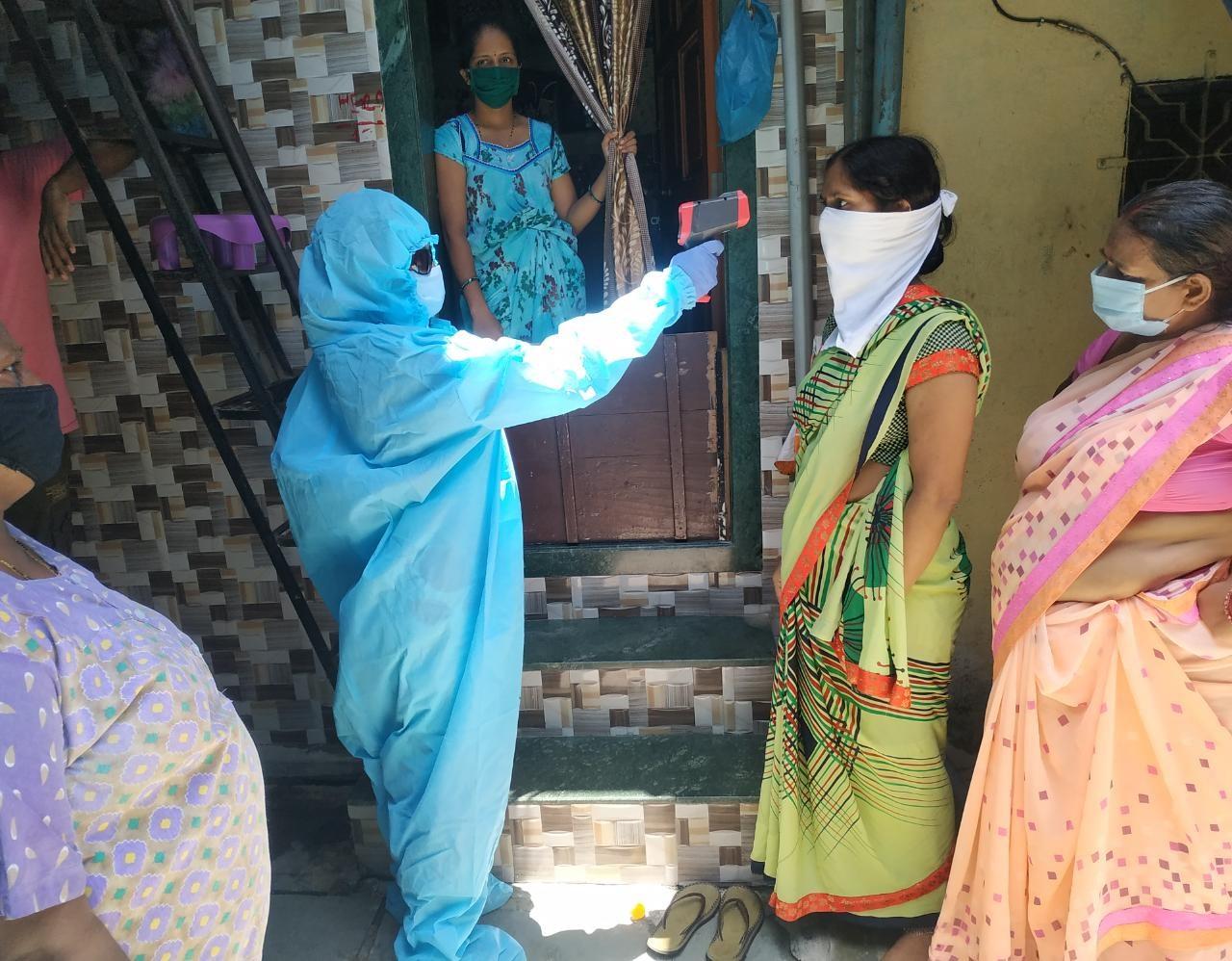
4 minute read
Being poor in a pandemic
The disparities are striking, but are we looking the other way?
By Adwait Dandwate from Vardhishnu
Jalgaon is on the important route that connects Maharashtra with Gujarat, Madhya Pradesh and Chhattisgarh. Hundreds of trucks and tempos cross Jalgaon every day. After the COVID-19 lockdown, every truck was packed with at least 80 to 100 people, sometimes even more, with barely any space to sit or breathe and a high risk of getting infected with COVID-19. These migrants did not have food, water, or money; yet they hoped they could reach their homes.
It is said that the migration due to partition was the biggest ever in history. But according to some statistics, the migration happening currently is even bigger than that. Some organisations in Jalgaon started food stalls for the migrants who are crossing Jalgaon and we are supporting some of them. One of the days during the lockdown I spent an evening at Firoz Bhai's stall. He runs an organisation in Jalgaon. He, along with his friends, worked for 24 hours to make sure that no one goes emptyhanded. What I experienced in those 4-5 hours is an experience of a lifetime - helplessness with the realisation that things are not in our hands, the sadness of leaving everything behind, happiness in the eyes when one gets to eat after a day or two. Staying in quarantine/lockdown is a luxury for some but for millions it is a series of neverending challenges. When some of us were busy trying new dishes at home, millions were struggling to find something to eat.
A few thousand years ago, there was a Roman king, Nero -famous for his luxuries and careless life. Nero once decided to organise a party, biggest in the history of Rome, during one of the worst-ever famines. The rich and famous of Rome were present at that party. Food, wine, fruits and all other luxuries were available for the guests. Everything was there, except lights. Nero asked his guards to take out the prisoners from the jail and burn them alive –to light up the place! Who were these prisoners? They were boys, women, older people, caught while picking up food to eat from the market. Ignoring the voices of the people burning alive, the guests enjoyed their delicious food. In the documentary Nero’s Guests directed by Deepa Bhatia, P. Sainath (former editor of The Hindu) says, "The question was never who was Nero." The question was who were Nero's guests? Who were those people who decided to enjoy and concentrate only on their foods and families while thousands were dying? He further adds, "After following the farmers’ suicide and other issues, today I have the answer. We are Nero's guests."
Everybody who decides to ignore the cries of the poorest of the poor is Nero's guest. In another instance, I left home on my bike to pick up my friend Deepak. We had planned to go out to distribute kits to the Banjara community living in a basti near Jalgaon. As soon as I came to the main road, I saw a young girl (14 years old) lying unconscious on the ground, a woman crying for help beside her and a few people gathered around them, but nobody willing to help for the fear of COVID-19. A bike had hit the girl a few minutes back and run away. There were no visible injuries, but the girl had to be taken to a hospital. With the help of a passer-by, we finally managed to take them both to a hospital.
The poor have suffered the worst during the pandemic and have silently borne and watched the inhuman treatment meted out to them.
After running around and pleading with doctors to attend to her, we were told that the girl should be taken to the Civil hospital. Meanwhile, the passer-by had left. I requested Deepak to get our office van, and reached out to another local friend, Honaji, who works with a trust which provides medical support to the poor. He suggested we take her to another private hospital –Godavari Medical - 20 km from Jalgaon city as the Civil hospital was converted into a COVID Relief Centre. At the hospital, we were asked to pay upfront for X-ray, CT-scan, among other tests. Only after speaking with the District Collector and other influential people, the hospital agreed to treat her free. By the time we returned to Jalgaon, it was 10 pm. While we were satisfied that we could help the girl, the incident raised many questions in my mind.
The poor have suffered the worst during the pandemic and have silently borne and watched the inhuman treatment meted out to them. In how many years can we create a better healthcare facility for the poorest of the poor so that they can get treatment without referrals? Also, what is wrong with society? Has the coronavirus become a taboo? You can debate on whether we should call it 'physical distancing' or 'social distancing', but it for sure has created a 'distancing of hearts and humanity'. Wouldn’t it be better to show compassion and help others than watch someone die from a distance like Nero's guests?
You can reach out to Adwait on adwaitdandwate@gmail.com






